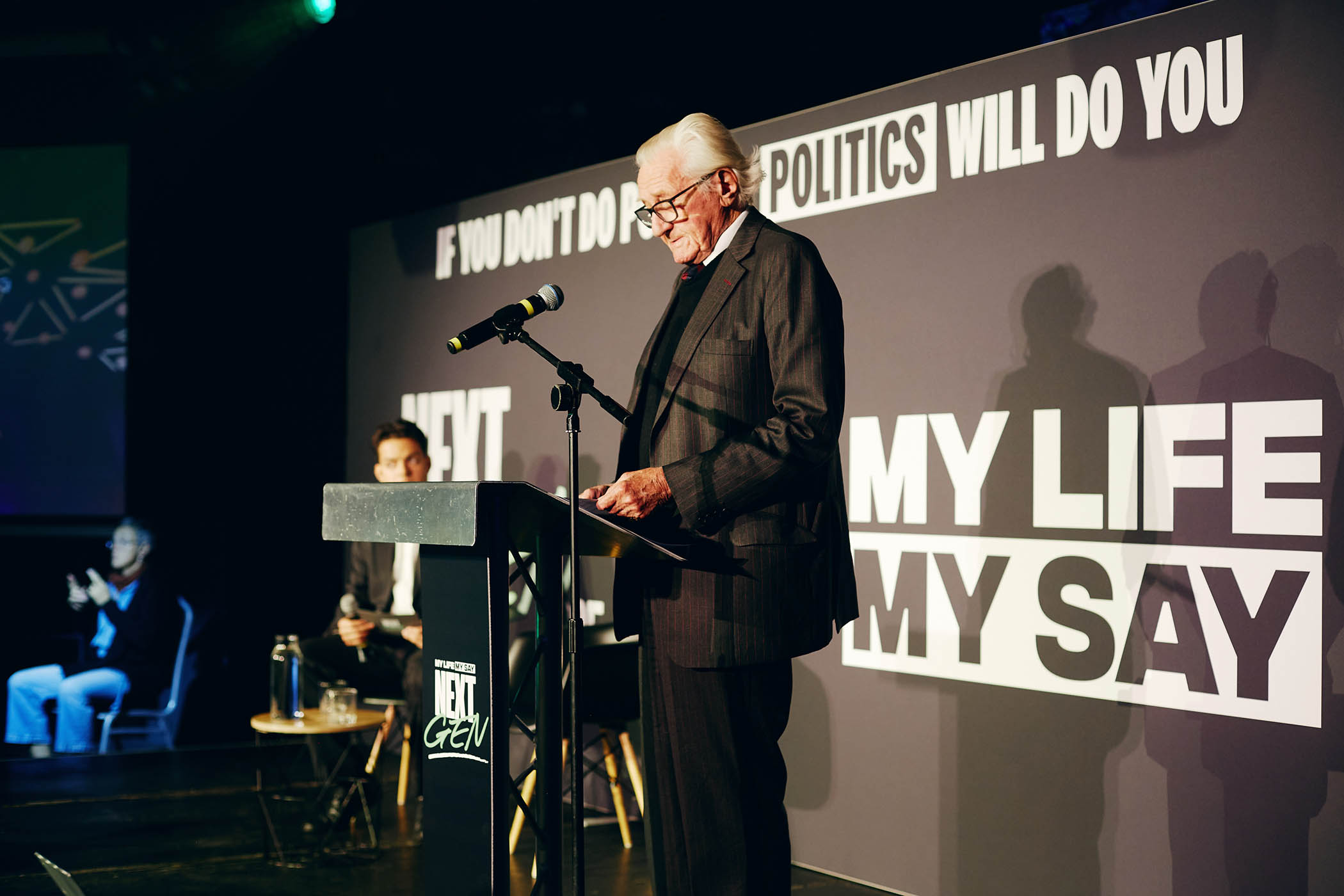He walked slowly to the lectern, one hand on the rail, the other behind his back. A 92-year-old Lord Heseltine at London’s Ministry of Sound isn’t an image you expect to see. But there he was at the Next Gen 2025 conference, the country’s biggest youth politics event, a Tory grandee in a nightclub famous for its basslines.
He didn’t do the usual throat-clearing. No jokes about being the oldest person in the room. He spoke about Britain. The Commonwealth.
The room was silent. At first, I thought he had lost the memo, but he kept going. He spoke about a country that once set its sights outward and refused to be small. About Europe as a project that once gave us purpose.
I watched from the balcony as, one by one, gen Zers lifted their phones to record his speech, each silent nod of approval captured in the glow of their screens. When he finished, the applause was among the loudest of the day.
Earlier, Zack Polanski did what the Green party of England and Wales increasingly excels at: he offered a picture of power flowing down to young people, not just promises of consultations. It landed. He told the room his party had more than 110,000 members, just a few dozen short of the Conservatives’ estimated 120,000, and has since said his party has now passed them. The Tories were represented by a former deputy prime minister, the Greens sent their party leader and Labour sent its youngest MP. I will leave you to guess what message that sent.
Labour is losing young people because its offer has shrunk. To win back their confidence, we need bold ideas. We need to say the things we are told not to say.
It’s time to stop whispering about what everyone already knows: Britain should go back into the European Union. Rachel Reeves last week admitted the obvious – that Brexit has caused long-term damage. The impact is clear, especially for young people. It’s made travel harder, opportunities smaller and futures feel narrower.
Many of us were never part of the Brexit conversation. I was 16, old enough to see the chaos but too young to take part. To change minds, we first need to rebuild a sense of ownership. If a future government was bold enough to put rejoining in its manifesto, we could see another referendum by 2031.
Related articles:
Earlier this year, a YouGov poll asked how people would vote if there were an EU referendum now: 74% of 18 to 24-year-olds said they’d vote to rejoin, and only 8% to stay out. Based on Office for National Statistics projections, I estimate that by 2031 around 15 million people aged 16 to 32 could be voting in their first EU referendum – roughly one-fifth of the electorate. That’s a generation large enough to reshape the outcome.
Here’s the awkward bit: we can’t wait for a political party to do this for us. Labour may worry about giving Reform an opening or unsettling swing voters who just want the noise to stop. But would a bit of noise around this issue really be so bad? It might, in fact, help change the tone of the debate with Reform altogether.
The question is, how do we make it happen? There is already so much energy in this country waiting to be channelled. Young people are building communities, finding each other, creating meaning in places politics has long ignored. But more than half of 18 to 24-year-olds don’t vote and that has to change if anything else is to.
Look at the Scream Club in London, a viral gathering where thousands of young people come together to scream. What started as a small online idea has become a worldwide phenomenon, with clips racking up hundreds of thousands of views. When I spoke to its London founder, Mona Sharif, she told me that Scream Club is political. For many who come, it’s not just about catharsis, it’s about frustration. These are young people who have done everything right – moved to the city, worked hard, followed the rules – yet still feel the social contract has been broken. They use the scream as a release, a moment to reclaim control in a world that often denies them any. Talking to Sharif inspired me, it reminded me how much possibility there is in these movements. It may look like another gen Z trend, but it speaks to something much deeper, a generation craving belonging and purpose. Imagine if that energy were channelled into a progressive movement.
That’s the opportunity progressives keep missing. Change won’t come from Westminster, but from how we help young people understand their power and, in this case, what Europe could mean for their lives.
Change won’t come from Westminster but from how we help young people understand their power
Change won’t come from Westminster but from how we help young people understand their power
Rejoining the EU isn’t the only bold idea we need, but it could be the one that brings together a formidable alliance.
I keep thinking about that moment when Heseltine finished, a room full of people, many who would disagree with his politics, clapping because he refused to make their future sound small. That moment stayed with me and perhaps with Polanski too, who has since confirmed the Greens would seek to rejoin the EU.
A country can change its mind. A generation can change the country. Let’s start here.
Shuab Gamote is the co-author, with Peter Hyman, of Inside the Mind of a 16-year-old, a report due to be published early next month
Newsletters
Choose the newsletters you want to receive
View more
For information about how The Observer protects your data, read our Privacy Policy


